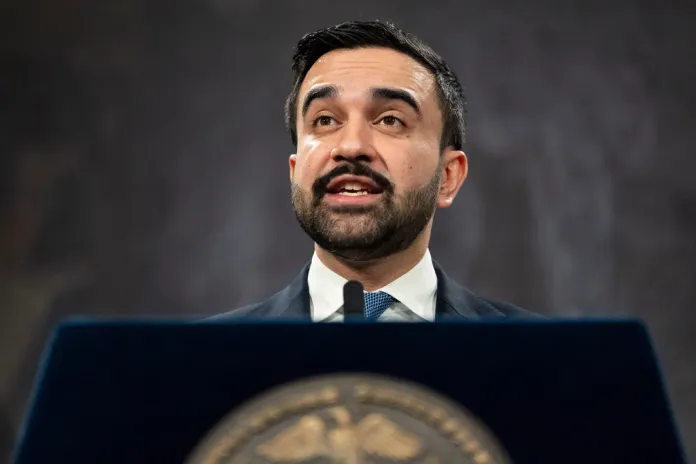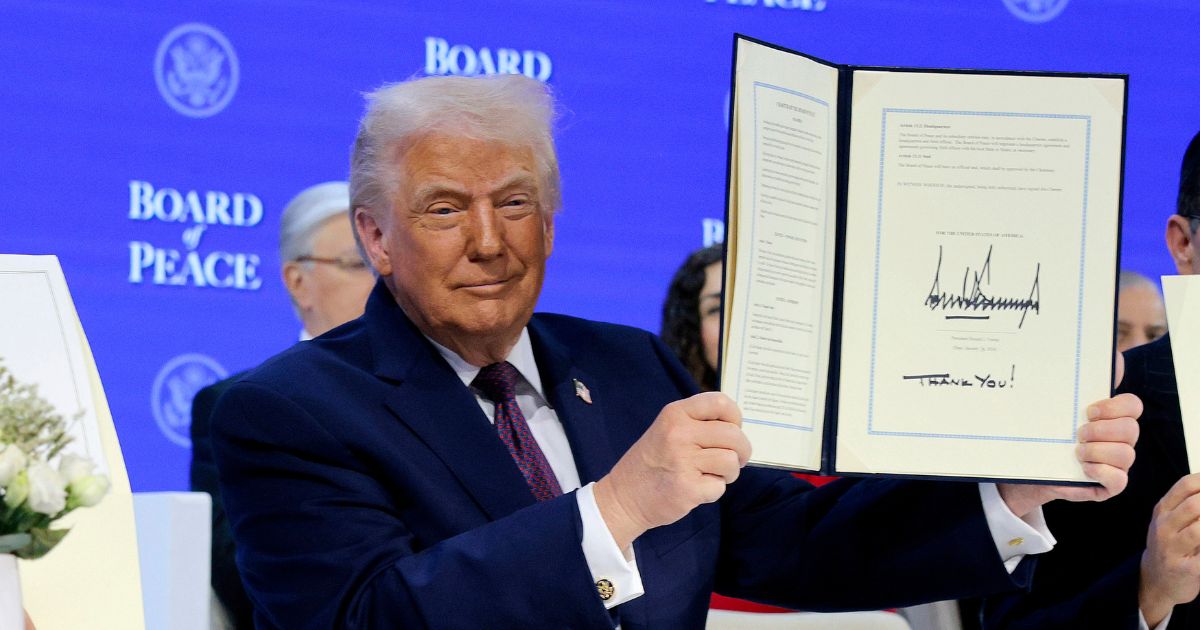How Mamdani won:The collapse of patriotism among affluent white people fueled the socialist’s rise
The article analyzes Zohran Mamdani’s surprising victory over Andrew Cuomo in the recent New York City Democratic mayoral primary. Various explanations for Mamdani’s win are considered, including cuomo’s poor campaign strategy and scandals, Mamdani’s charismatic and savvy use of social media, and changing demographics in the city. Though,the piece argues the moast significant factor behind Mamdani’s success is the collapse of patriotic pride among affluent,highly educated urban voters,many of whom see America and its history with shame rather than pride.
Polling data is cited showing record low levels of American pride, especially among Democrats, independents, and younger generations, which undercut support for establishment candidates like Cuomo. this cultural shift has helped create a political habitat where a radical socialist like Mamdani-who openly embraces Marxism, criticizes capitalism and U.S. allies like Israel, and has expressed sympathy toward controversial figures-can gain traction.
The article challenges right-wing claims that immigration and demographic change alone drove Mamdani’s victory, noting that his support was strongest in wealthy, liberal neighborhoods rather than immigrant-heavy areas. Instead, it highlights how elite urban voters’ embracing of anti-American attitudes and identity politics played a key role, reshaping the electorate.
Ultimately, Mamdani’s win is portrayed less as an endorsement of his policies and more as a reflection of a broader decline in patriotic attachment and shifting cultural values among America’s educated, affluent classes-signaling a changing political landscape where anti-Americanism has become a powerful influence.
How Mamdani won:The collapse of patriotism among affluent white people fueled the socialist’s rise
Almost everyone has a theory to explain Zohran Mamdani’s shocking upset victory over former Gov. Andrew Cuomo in New York City’s Democratic mayoral primary last month.
Some credit the success of the 33-year-old socialist’s insurgent campaign to the scandal-scarred Cuomo’s hapless one.
“He ran, arguably, the worst front-runner campaign in New York history,” New York magazine’s Ross Barkan declared. “He hardly campaigned at all. He avoided public appearances and media questions. His various scandals, from the sexual-harassment allegations that forced him from office to his mismanagement of COVID, continued to dog him, and he had no answers.”
David Paterson, Cuomo’s gubernatorial predecessor and a supporter of his mayoral campaign, mused, “All of us have a blind spot,” adding, “[Cuomo’s] blind spot is that he doesn’t really connect particularly well with, just, people.”
Others insist Mamdani is a generational political talent with his finger on the pulse of the city, social media, and direction of the country.
“He’s got rizz. He just does,” MSNBC’s Chris Hayes told the New York Times’s Ezra Klein. “There’s a perfect pairing between that charisma, that way of communicating, with the form that he used — and then the fact that the algorithmic social media means a thing can blow up.”
Still others, especially on the Right, believe that Mamdani’s victory was the inevitable consequence of demographic change.
“The commentary about NYC Democrats nominating an anarchist-socialist for mayor omits one point: how unchecked migration fundamentally remade the NYC electorate,” White House deputy chief of staff for policy Stephen Miller submitted. “Democrats change politics by changing voters.”
Fox News’s Laura Ingraham concurred, “Uncontrolled immigration, greenlit since the ’80s by the Uniparty, is remaking every American community,” adding, “We imported anti-Americanism, cultivated it in schools. Now comes the poisonous crop.”
Motivated reasoning is a powerful confounding variable in the formation of humans’ explanations for extraordinary events. And often, one or more truths, bent to fit neatly into a partisan narrative, can elide another, more pressing one.
President Donald Trump’s allies have every reason to continue to decry the fruits of his predecessor’s open border policies, just as the Democrats’ left flank has every reason to chalk Mamdani’s rise up to either his own inspiring message or widespread dissatisfaction with the party’s corrupt, stultifying establishment.
But these theories overlook the best explanation of the Mamdani stunner, one with more far-reaching implications: Many Americans, and especially well-to-do, highly educated ones who live in cities like New York, view their country, its system, and the values underpinning it as something to be ashamed of, rather than proud of.
Consider the results of a new Gallup poll that Lee Greenwood’s family and medical team should hide from him. According to the gold-standard survey, a record low 58% of respondents indicated they were either “extremely” or “very” proud to be American.
That figure is explained entirely by a remarkable collapse in pride among both independents and Democrats. In the latter group, more said they were “only a little” or “not at all” proud (39%) than were “extremely” or “very” (36%). The trend was even more pronounced among Generation-Z Democrats, of whom just 24% fell into the more patriotic category.
College graduates are less proud (55%) than those with some college experience (64%) or those with a high school diploma or less (60%).
At first glance, it would be easy to write these results off as a passing phenomenon, a temporary overreaction by those most disgusted by Trump’s persona, policies, and rise back to power.
If only. A 2014 survey from the Pew Research Center found that just 40% of “solid liberals” professed to “often feel proud to be an American.” This was just two years after Barack Obama had been resoundingly returned to the White House for a second term. A smaller proportion of this cohort than any other (51%) also indicated they conceived of themselves as being a “typical American.” The next lowest group came in at 66%.
There is no one, single reason why Mamdani is now the prohibitive favorite to lead America’s most iconic city. His savvy, Cuomo’s ineptitude, and his ability to turn out previously disengaged Asian immigrants were all among the contributing factors. But he never would have been able to prevail without the manufactured collapse in patriotic pride among the electorate.
Ingraham had it half right. Data from Cuomo and Mamdani’s showdown show that, contrary to one of her claims, it wasn’t an invasive horde of anti-American immigrants who were the driving force behind the latter’s victory. Except for the previously disengaged Asian American-heavy areas that Mamdani was able to activate, Cuomo performed better in minority-heavy neighborhoods and won the Bronx.
The dearth of evidence for the importation of anti-Americanism is matched by the abundance of proof of its cultivation. It was rich, white elites who had spent years being told by society’s most powerful institutions that their country’s history is a burden to be overcome, rather than a heritage to be treasured, who turned out in droves for Mamdani.
A New York Times analysis found that Mamdani enjoyed 35-plus-point advantages “in tony, liberal neighborhoods like Fort Greene and Clinton Hill, known for their tree-lined streets and multimillion-dollar brownstones,” and even better margins in the wealthy Brooklyn neighborhoods of Greenpoint and Williamsburg.
The direction of national politics mirrors the Big Apple’s. In the 2024 presidential election, Trump lost Hispanic voters to then-Vice President Kamala Harris by just 3 points after losing them by 25 points in 2020 and 38 in 2016. Trump also made significant gains with black voters (+16 as compared to 2020) and Asians (+23). The only demographic group he lost ground with? White women.
There are discrete policy issues driving some of these trends. Working-class voters of all backgrounds are more attuned to the economic costs of illegal immigration, the destructive impact of crime, and the suffocating feeling of having to provide for their families in an inflationary environment. More comfortable, highly educated voters, on the other hand, are much more sensitive to cultural issues emphasized by their peers — and inclined to support the party associated with the “right” attitudes about them.
And the granddaddy of all of these attitudes is an overarching anti-Americanism, as exemplified in the person of Zohran Mamdani.
The privileged son of a Columbia professor and an acclaimed filmmaker, Mamdani openly celebrates the events that led to the establishment of the Soviet Union, an evil empire that the United States spent the second half of the 20th century saving the world from.
Moreover, he’s a true-blue, or true-Red, believer in the ideology that underpinned the USSR. In 2020, he approvingly quoted Karl Marx. In 2021, he identified his “end goal” as “seizing the means of production.” When asked, “Do you like capitalism?” last month, he answered, “No.”
Government-run grocery stores. Price controls. “Free” services. His ideas are not fresh, innovative, bold, or new ones but the same old ones that have failed over and over across time and space.
A critic of the American conception of merit, Mamdani has called for the abolition, in the name of racial justice, of New York City’s Specialized High School Admissions Test, which gives students, many of them from disadvantaged backgrounds, a chance to earn a place in one of the city’s eight selective, high-performing high schools. At the same time, he made a mockery of one of America’s most misguided attempts at remedying historical racial wrongs by unsuccessfully seeking admission to Columbia under the guise of being “African American.”
Mamdani is similarly disdainful of the U.S.’s record abroad. He is an unrelenting critic of its most important Middle Eastern ally, Israel, whose right to exist as the world’s only Jewish state he denies, and whose prime minister he says ought to be arrested should he visit New York City. He refused to condemn and even provided cover to the antisemitic throngs screaming, “Globalize the intifada!” at rallies around the country.
He blamed the late al Qaeda leader Anwar al Awlaki’s turn to terrorism on the FBI’s surveillance of him. He joined Hasan Piker, the hard-left commentator who said the U.S. “deserved 9/11,” for a chummy chat in April. In 2017, while still pursuing a musical career, Mamdani rapped, “My love to the Holy Land Five. You better look ’em up.” Those who followed orders learned that Mamdani was singing in praise of five men convicted of charges pertaining to a scheme to provide material support to Hamas.
The public image Mamdani has so expertly crafted is unmistakable. He resents America’s economic system, meritocracy, alliances abroad, and prudent national security measures. He celebrates its historical enemies, “equity,” Marxism, and the cause of Islamists. His radicalism wasn’t an embarrassing past phase that he disavowed in the interest of prevailing in last month’s primary but a feature of the, yes, rather impressive campaign that helped him dispatch the, yes, hapless Cuomo.
That it worked is far less significant for what it says about the merits of Mamdani and Cuomo as campaigners than for what it says about a political landscape in which anti-Americanism is now a potent force.
Isaac Schorr is a staff writer at Mediaite and a Robert Novak fellow at the Fund for American Studies.
" Conservative News Daily does not always share or support the views and opinions expressed here; they are just those of the writer."


